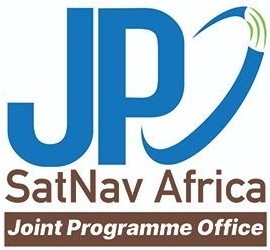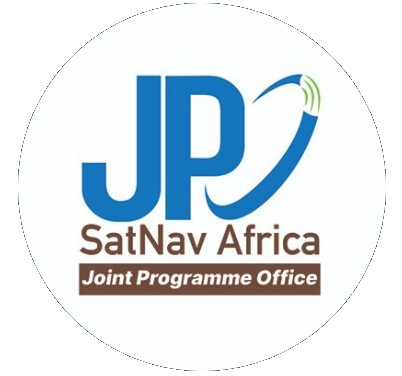
Aéroport international Léopold Sédar Senghor
ABOUT US
Mon - Fri, 2022
7:30 AM – 3:30 PM
Immeuble San Marco
BP 8163 Dakar - Sénégal
+221 33 865 40 27
Contact@satnav-africa.org

Mon - Fri, 2022
7:30 AM – 3:30 PM
Immeuble San Marco
BP 8163 Dakar - Sénégal
+221 33 865 40 27
Contact@satnav-africa.org
The African Union (AU) is a continental body consisting of the 55 member states that make up the countries of the African Continent. It was officially launched in 2002 as a successor to the Organisation of African Unity (OAU, 1963-1999).
The African Union Commission (AUC) is the AU’s secretariat and undertakes the day to day activities of the Union. AUC through AU is a co-signatory of the Africa-EU strategic partnership and hence has the ultimate ownership of the programme for SBAS implementation in Africa.
The African Civil Aviation Commission (AFCAC) was created by the Constitutional Conference convened by the International Civil Aviation Organization (ICAO) and the then Organization of African Unity (OAU, now African Union AU) in Addis Ababa, Ethiopia, in 1964. AFCAC was fully established and began functioning in 1969 and on 11 May, 1978 became an OAU Specialized Agency in the field of Civil Aviation. AFCAC today comprises 54 African States and is managed through a triennial Plenary (consisting of all member States). The Bureau is made up of a President, 5 Vice-Presidents (representing Northern, Western, Eastern, Central and Southern Africa Regions) and the Coordinator of the African Group at the ICAO Council.
AFCAC has a major role to play concerning technical, legal, and institutional issues related to aviation applications and EGNOS implementation in Africa considering that Aviation is the priority entry point of the Programme. AFCAC is supervising on behalf of AUC the conduct of a continental CBA study and strategy on the implementation of SBAS in Africa.
ICAO is funded and directed by 193 national governments to support their diplomacy and cooperation in air transport as signatory states to the Chicago Convention (1944).
Its core function is to maintain an administrative and expert bureaucracy (the ICAO Secretariat) supporting these diplomatic interactions, and to research new air transport policy and standardization innovations as directed and endorsed by governments through the ICAO Assembly, or by the ICAO Council which the assembly elects.
The Agency for Aerial Navigation Safety in Africa and Madagascar (L'Agence pour la Sécurité de la Navigation aérienne en Afrique et à Madagascar), ASECNA is an international public organization whose main mission is to provide air navigation services within an airspace of 16,500,000 square kilometres, divided into six flight information regions (F.I.R) Antananarivo, Brazzaville, Dakar Oceanic and Terrestrial, Niamey[1] and N’Djamena as defined by the International Civil Aviation Organization (ICAO).
ASECNA develops and provides solutions for airport management, aviation infrastructure studies and construction, equipment maintenance, calibration of air navigation instruments and training for civil aviation staff. Its 18 Member States are: Benin, Burkina Faso, Cameroon, Central African Republic, Comoros, Congo, Côte d’Ivoire, France, Gabon, Guinea Bissau, Equatorial Guinea, Madagascar, Mali, Mauritania, Niger, Senegal, Chad and Togo.
ASECNA provides support for the administrative and financial management of the Satellite navigation in Africa support programme III.
Regional Economic Communities have a central role in the uptake of SBAS in their respective regions under their geographic scope, addressing the critical issue of sustainability of SBAS implementation.
The following RECs are considered as key policy actors in Africa: ACAO for Northern Africa ECOWAS and ECCAS for Western and central Africa; EAC, IGAD, COMESA, and CEN-SAD for Eastern Africa; SADC and COMESA for Southern Africa.
The benefits and added value of GNSS/SBAS can be realised along the both in the aviation and the non-aviation sectors. National Space Agencies also play an important role in the GNSS value chains within the different sectors including in the upstream market segment as well as raising awareness in the downstream segment.

The Civil Aviation Authorities (CAAs) of the different states are the respective national safety oversight entities, responsible for ensuring the effective implementation of ICAO Standards and Recommended Practices (SARPS), the critical elements of its safety oversight system as well as relevant safety practices and procedures in the respective state. They are responsible for regulation focusing on developing policies, rules, regulations, procedures regarding Air Traffic Management based on operational requirements as well as the capabilities of GNSS and operational approvals.
The ANSPs are responsible for the provision of Air Navigation Services. They are also responsible for developing flight procedures for the use of GNSS/SBAS and the provision of Air Traffic Services concerning Airspace users including the provision of ICAO compliant NOTAMs and the conduct of incident investigation activities.
ANSPs are also responsible for complying with the conditions set by the states or CAAs for the use of GNSS/SBAS in their territories and for obtaining approval from their CAA that their operations and safety processes are compliant with the said conditions.
It must be noted that in some cases where SBAS has already been implemented, the ANSPs are responsible and/or play a major role in the provision of the SBAS service. These beneficiaries are therefore also crucial partners/beneficiaries in the SBAS implementation and adoption process.

This group of benefires includes all the organisations/actors in the different non aviation sectors ie Maritime, Road, Rail, Agriculture, consumer Location-Based Services, Geoformation, Timing and synchronization as well as Drones and Internet of Things (IoT) sectors. These actors may be involved as required on a case by case basis


